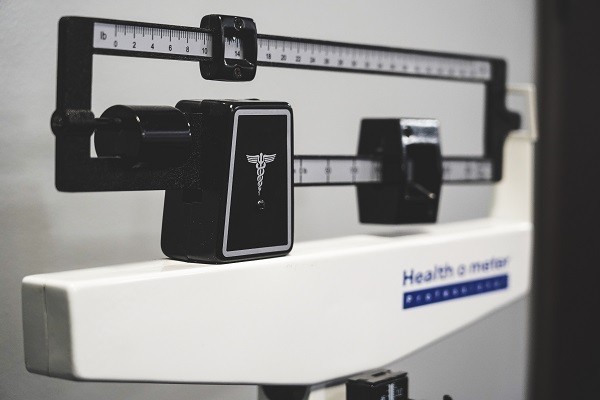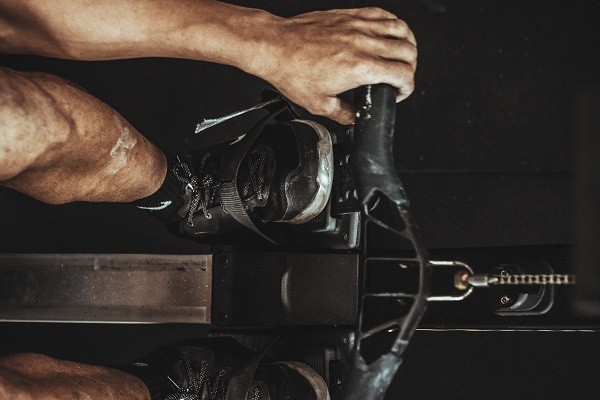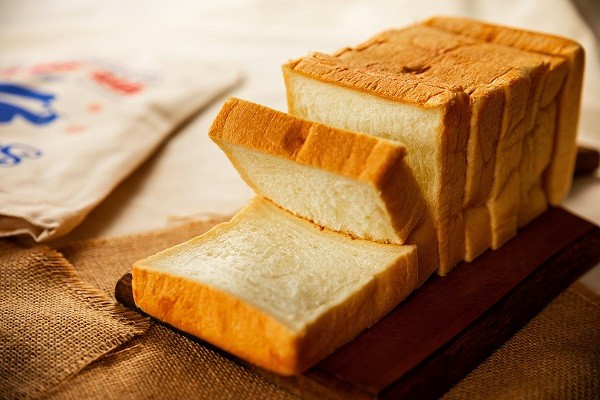How to Keep Losing Weight When Fat Loss Stalls

Fat Loss Tips: How to keep losing fat when progress stops
Here's a fact most of the weight loss industry won't tell you: your body really doesn't want you to lose weight!
Researchers refer to this as "adaptive thermogenesis", your body preventing too many calories from being burned in the face of potential starvation (which is what it sees a diet as).
So, the way to KEEP losing weight is to continually "trick" the body into thinking it isn't dieting at all. In pre-historic times, we were forced to go long periods without food, and we had to preserve fat tissue to keep us alive ahead of our next meal (whenever that was going to be).
When we diet, our body sees this as a potential threat to its survival and retaliates by slowing down our metabolism. And one of the ways this happens is via the slowing down of your Thermic Effect of Food (TEF). TEF refers to the calories burnt by your body to digest the food you eat (protein is the highest at 30%).
Precisely, if you are reducing your calories by 500, eventually your TEF is reduced by 10%, meaning you'll burn 50 calories less. It seems insignificant but over a long dieting period it adds up.
NEAT, TEF, and LEPTIN: How to keep losing fat when dieting gets hard
Then there's your Resting Metabolic Rate (RMR) that also decreases when you lose fat. A male trying to lose fat who is under 15% body fat will experience a 15% reduction of BMR, whilst a woman under 25% body fat will experience a 17-20% decrease.
You've most likely experienced less energy for training and daily life when dieting. When you're not restricting calories, you'll notice you can have an abundance of energy to tap your foot, go to the bathroom, get up to lock the door, etc. All of these calorie-burning activities are referred to as Non-Exercise Activity Thermogenesis (NEAT), and all of these "NEAT" activities are reduced also during the dieting periods.
And one of the reasons you experience a reduction in your burnt calories is due to a drop in a hormone called leptin. Leptin is a protein that also acts as an appetite-controlling hormone.
So, increase leptin when you're dieting and you're doing your fat loss goals a favour!
The aforementioned reasons are why you can cease to keep losing fat. And the rest of the article will outline how to combat it.

Losing the last bit of fat: How to keep losing weight
What most dieters get wrong is thinking that after they've lost fat, their Total Daily Energy Expenditure (TDEE) is the same. But as we've learnt, the body adapts after periods in a calorie deficit. So, what does that look like?
Your new calorie intake = reduce calories by 10% when weight loss halts below half a kilo per week.
So, eating less food is one of the first steps to ensuring you keep losing body fat.
Where so many people go wrong is starting their diets by doing EVERYTHING as hardcore as possible: endless cardio, 5-6 weight sessions, and a large calorie deficit.
And it works... until fat loss stalls in the ways we've outlined. And they don't account for the changes!
And so, here's the "secret" -- we must keep introducing new strategies to keep our bodies losing weight, and more so, prevent fat loss from stalling. We're talking about:
- Reducing calories by 10% when weight loss halts below half a kilo per week
- Eating less food
- Doing more exercise
- Eating more food at certain stages (more on this in a moment!).
- Understanding the process of steps 1-4.
Planning for long-term fat loss
It's all about having fresh weapons up your sleeve to fight your fat; it's a good idea to keep cardio in your back pocket for the first 4-6 weeks so you have something to surprise your body with.
Once 6 weeks have passed, adopting Low-Intensity Steady State (LISS) Cardio is a good idea. LISS cardio is performed at a low intensity: rowing, walking, swimming, or using any cardio machines at the gym like the elliptical machine.
Here's what we're talking about specifically:
Weeks 1-4: Weight training 5 x per week with no cardio
Week 4-6 -- Cardio (LISS) 3 times per week. Weight training stays consistent at 5 sessions a week.
Weeks 6-8 -- Cardio (LISS) 5 times per week. Weight training stays consistent at 5 sessions a week.
Weeks 8-10 -- Cardio (LISS) 5 times per week but going 1.5 times your previous distance. Weight training stays consistent at 5 sessions a week.
Weeks 10-12 -- Cardio (LISS) 7 times per week but going 1.5 times your previous distance (at 1.5 times the distance performed during weeks 1-8). Weight training stays consistent at 5 sessions a week.
FOOD INTAKE: Recalibrate your daily calorie intake by cutting it by about 10% after fat loss slows below half a kilogram a week.

Leptin and carbohydrates: Eating more to lose weight
It sounds so counterproductive but eating more carbohydrates at certain strategic stages can help with fat loss. We spoke about the hormone leptin and how it drops during periods of dieting which ultimately means we burn fewer calories.
Well, it just so happens that the way we INCREASE leptin again is by eating carbohydrates!
And we do this as part of a "refeed day", the process of eating lots of carbohydrates to replenish leptin. By implementing a refeed day, research suggests leptin may only be boosted by 5-10 hours. But the additional benefits of a refeed are:
- A mental break from our diets (which can help prevent a binge)
- Induce satiety beyond what we're used to during dieting
- Refuel our muscles with carbohydrates to ensure optimal output for future workouts
So when should we have a refeed day? Scientists have no definite guidelines at the time we wrote this article. However, here are some strong guidelines:
- Men at 10% body fat or more: 1 x refeed day every 2 weeks
- Women at 20% body fat or more: 1 x refeed day every 2 weeks.
And if you happen to be <10% body fat (irrespective of gender) then has one refeed day per week. Keep in mind that these guidelines are just that: guidelines. Just don't go overboard and enter a calorie surplus too often, as that's obviously the worst thing you can do for your diet!
Dietary fat will also need to be drastically slashed on refeed days because fat doesn't increase leptin levels. But now for the fun part: how many carbohydrates you can eat!
How many carbohydrates to eat on a refeed day to prevent weight loss stalling
You can work this out by taking the following steps:
- Double your current carbohydrate amount
- Set your fat intake at 30 grams for the day
- Reduce your protein by 30 grams for the day

And remember that in order to keep dietary fat intake low, you'll need carbohydrate sources low in fat. We're talking about:
- Rice
- Potatoes
- Low-fat pasta
- Maple syrup
- Pikelets
- Bread
So with the refeed day factored in, we now have a solid strategy to fight fat loss plateaus! The 5 steps for ensuring fat loss keeps progressing can roughly be boiled down to:
- Reducing calories by 10% when weight loss halts below half a kilo per week
- Keeping cardio in your back pocket as a secret weapon
- Eating less food is in line with the outcome of step 1
- Having refeed days when you need them
- Understand weight loss stalling is normal and that you can overcome it
By remembering these steps you'll be giving yourself your best chance at not falling victim to a fat loss plateau, and losing the weight you want, faster!
References:
- Ahima RS. Revisiting leptin's role in obesity and weight loss. J Clin Invest. 2008 Jul;118(7):2380-3. doi: 10.1172/JCI36284. PMID: 18568083; PMCID: PMC2430504.
- Arne Astrup, Peter C Gøtzsche, Karen van de Werken, Claudia Ranneries, Søren Toubro, Anne Raben, Benjamin Buemann, Meta-analysis of resting metabolic rate in formerly obese subjects, The American Journal of Clinical Nutrition, Volume 69, Issue 6, June 1999, Pages 1117–1122, https://www.sciencedirect.com/science/article/pii/S000291652204415X
- Brooks GA, Mercier J. Balance of carbohydrate and lipid utilization during exercise: the "crossover" concept. J Appl Physiol (1985). 1994 Jun;76(6):2253-61. doi: 10.1152/jappl.1994.76.6.2253. PMID: 7928844.
- Dirlewanger M, di Vetta V, Guenat E, Battilana P, Seematter G, Schneiter P, Jéquier E, Tappy L. Effects of short-term carbohydrate or fat overfeeding on energy expenditure and plasma leptin concentrations in healthy female subjects. Int J Obes Relat Metab Disord. 2000 Nov;24(11):1413-8. doi: 10.1038/sj.ijo.0801395. PMID: 11126336.
- Eriksson J, Valle T, Lindström J, Haffner S, Louheranta A, Uusitupa M, Tuomilehto J. Leptin concentrations and their relation to body fat distribution and weight loss--a prospective study in individuals with impaired glucose tolerance. DPS-study group. Horm Metab Res. 1999 Nov;31(11):616-9. doi: 10.1055/s-2007-978807. PMID: 10598830.
- Evert AB, Franz MJ. Why Weight Loss Maintenance Is Difficult. Diabetes Spectr. 2017;30(3):153-156. doi:10.2337/ds017-0025
- Frey-Hewitt B, Vranizan KM, Dreon DM, Wood PD. The effect of weight loss by dieting or exercise on resting metabolic rate in overweight men. Int J Obes. 1990 Apr;14(4):327-34. PMID: 2361810.
- Kolaczynski JW, Ohannesian JP, Considine RV, Marco CC, Caro JF. Response of leptin to short-term and prolonged overfeeding in humans. J Clin Endocrinol Metab. 1996 Nov;81(11):4162-5. doi: 10.1210/jcem.81.11.8923877. PMID: 8923877.
- MacLean PS, Higgins JA, Giles ED, Sherk VD, Jackman MR. The role for adipose tissue in weight regain after weight loss. Obes Rev. 2015 Feb;16 Suppl 1(Suppl 1):45-54. doi: 10.1111/obr.12255. PMID: 25614203; PMCID: PMC4371661.
- Martin CK, Das SK, Lindblad L, Racette SB, McCrory MA, Weiss EP, Delany JP, Kraus WE; CALERIE Study Team. Effect of calorie restriction on the free-living physical activity levels of nonobese humans: results of three randomized trials. J Appl Physiol (1985). 2011 Apr;110(4):956-63. doi: 10.1152/japplphysiol.00846.2009. Epub 2011 Feb 3. PMID: 21292847; PMCID: PMC3075130.
- McDonald L. The ultimate diet 2.0.
- McDonald, L. 2016. Alan Aragon Research Review (AARR): How to Adjust Your Diet for Continuous Fat Loss [online]. [viewed on January 17, 2017].
- Morton GJ, Cummings DE, Baskin DG, Barsh GS, Schwartz MW. Central nervous system control of food intake and body weight. Nature. 2006 Sep 21;443(7109):289-95. doi: 10.1038/nature05026. PMID: 16988703.
- N.D. Luscombe, P.M. Clifton, M. Noakes, B. Parker, G. Wittert. Effects of Energy-Restricted Diets Containing Increased Protein on Weight Loss, Resting Energy Expenditure, and the Thermic Effect of Feeding in Type 2 Diabetes. Diabetes Care Apr 2002, 25 (4) 652-657; DOI: 10.2337/diacare.25.4.652
- Pesta DH, Samuel VT. A high-protein diet for reducing body fat: mechanisms and possible caveats. Nutr Metab (Lond). 2014;11(1):53. Published 2014 Nov 19. doi:10.1186/1743-7075-11-53
- Redman, L.M. at al. 2009. Metabolic and behavioral compensations in response to caloric restriction: implications for the maintenance of weight loss. PloS One. Vol. 4, No. 2, e4377.
Related Blogs

Crushing Three Massive Cardio Myths
Posted by Jackson Peos
Estimated reading time: 7 minutes

Cardio for fat loss: Fasted or fed?
Posted by Ellie Hearn
Estimated reading time: 5 minutes

How to Lose Weight (And Preserve Strength) Without Doing Cardio
Posted by Bulk Nutrients
Estimated reading time: 7 minutes












































